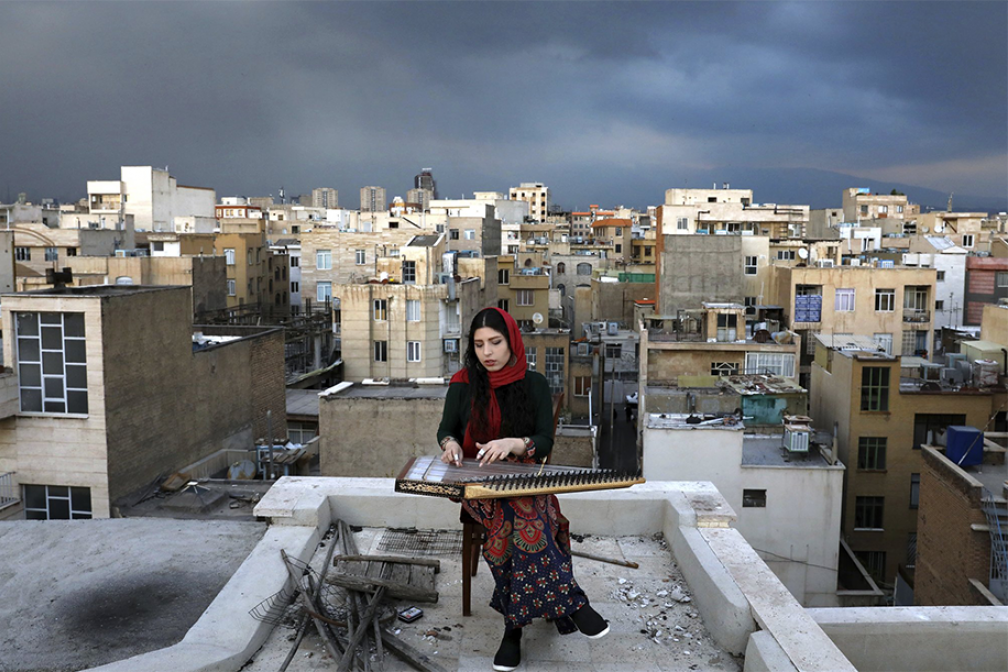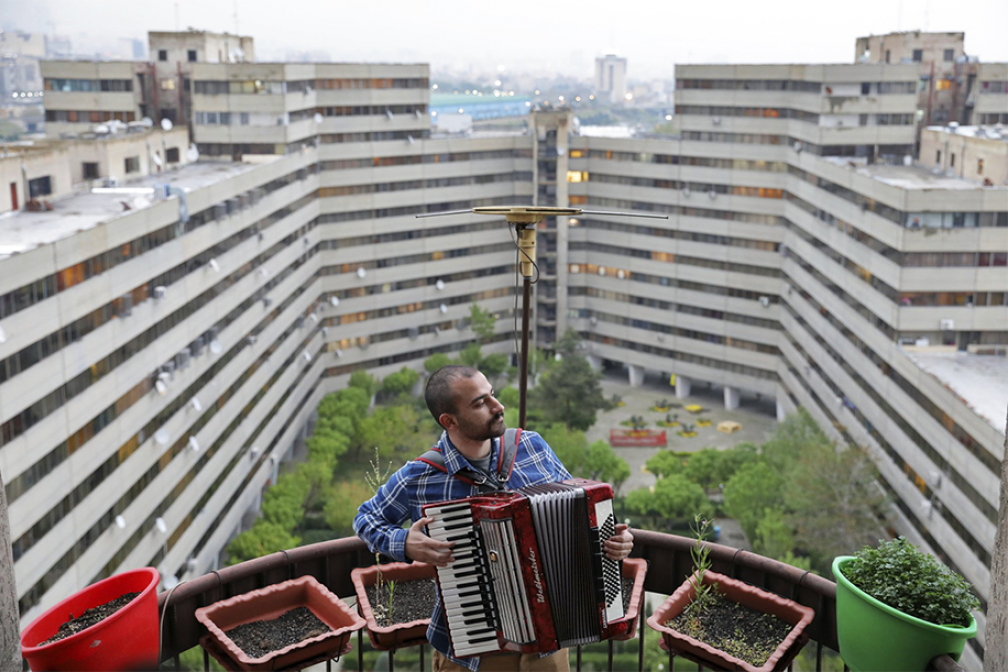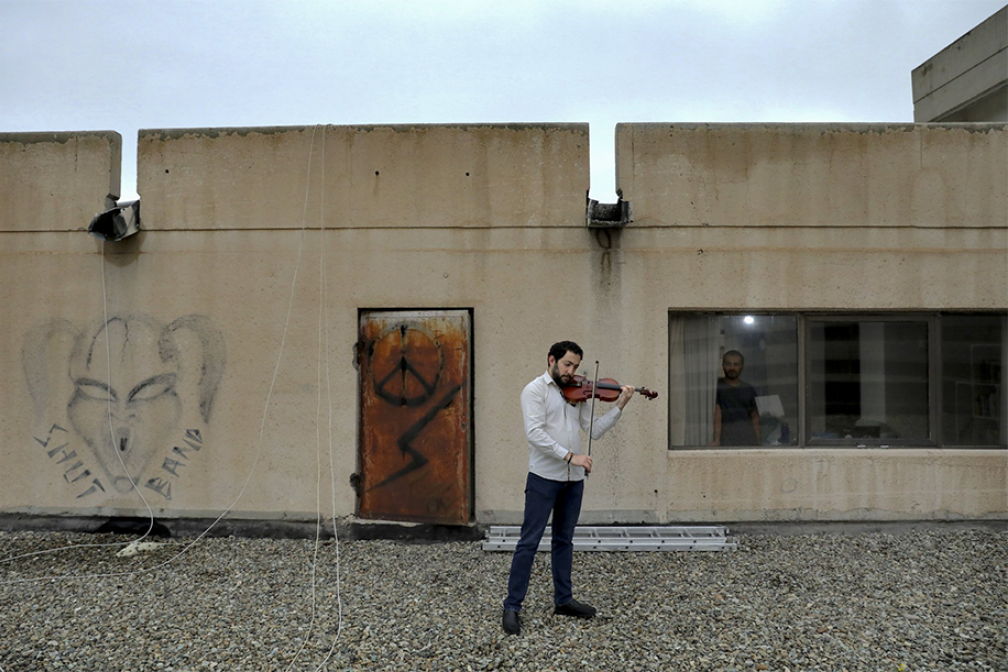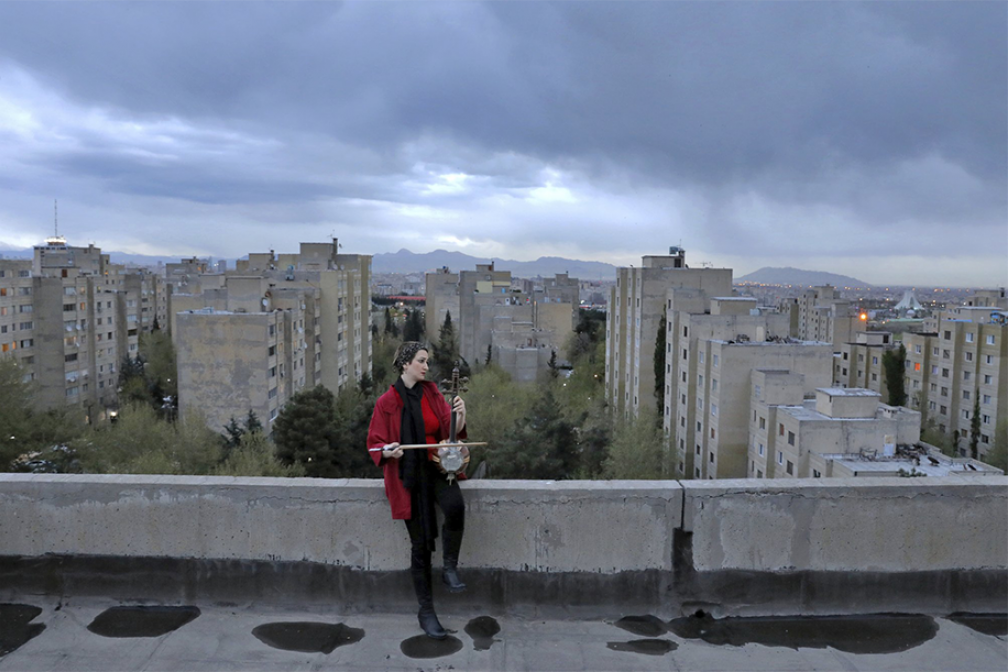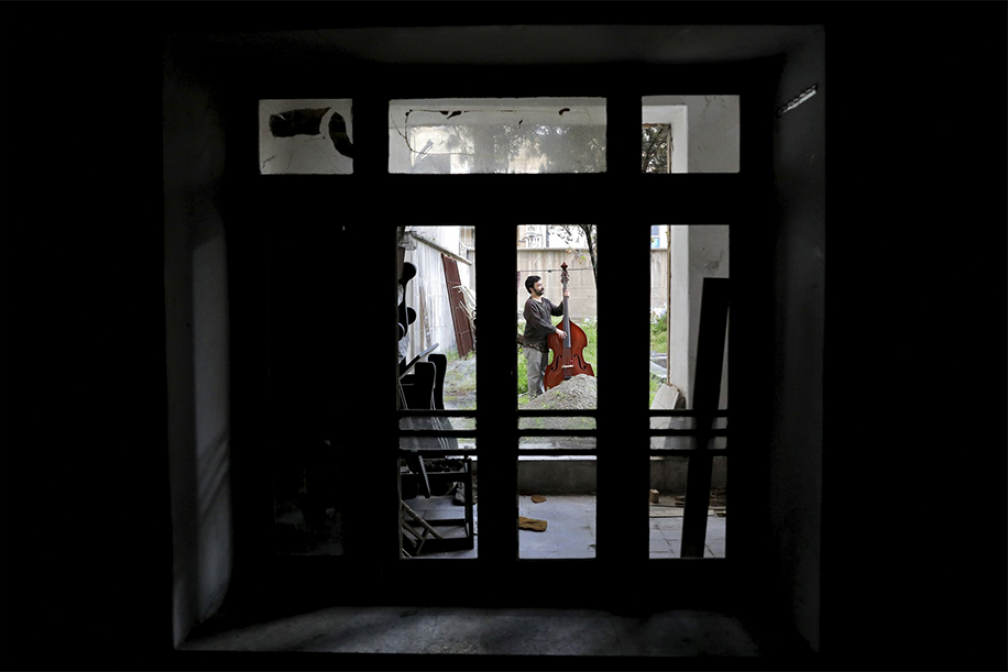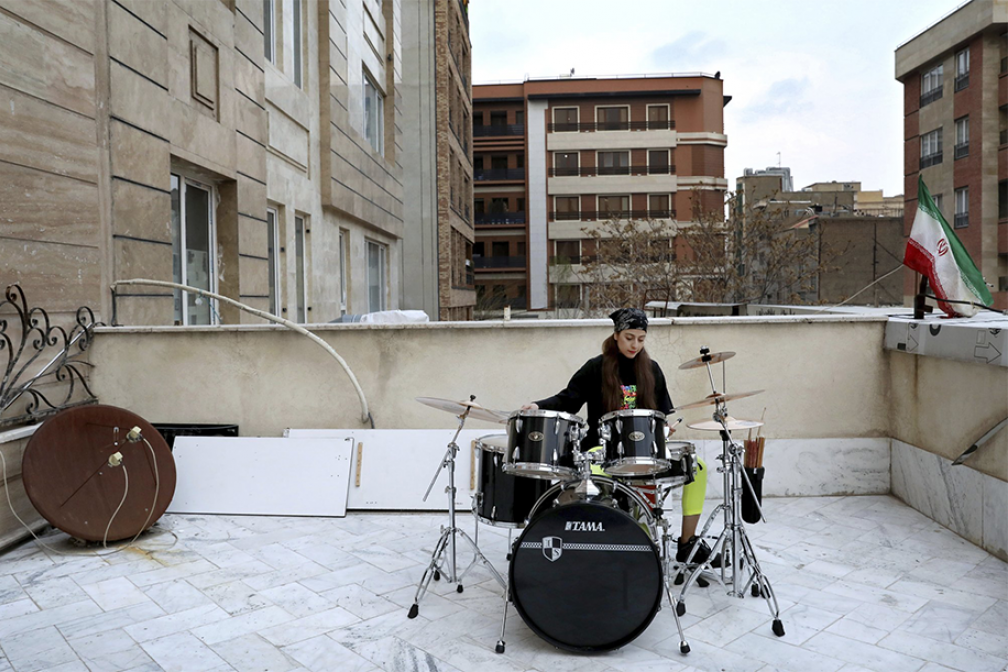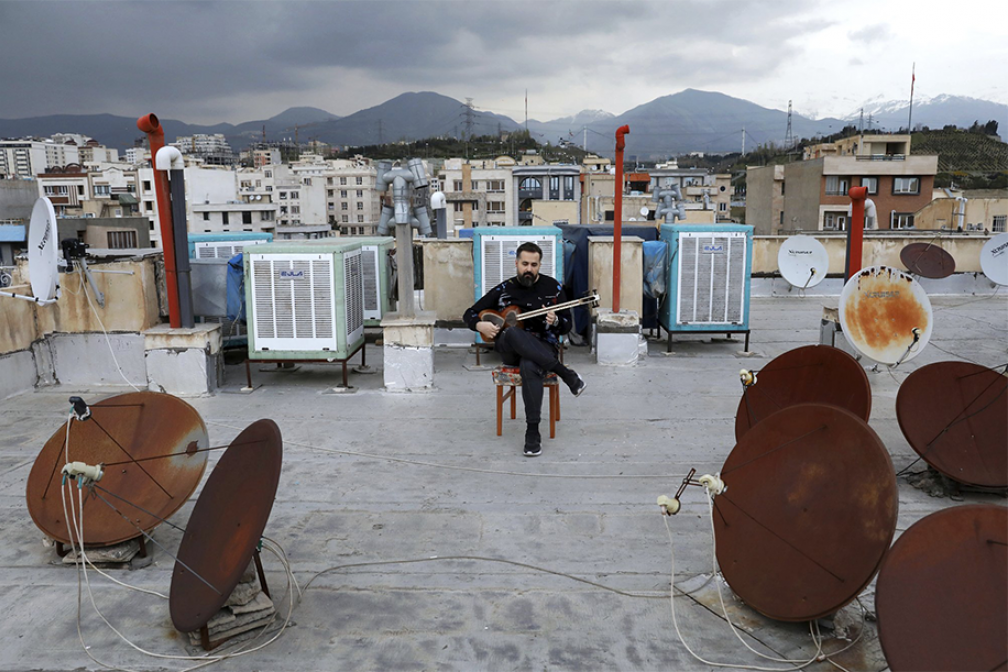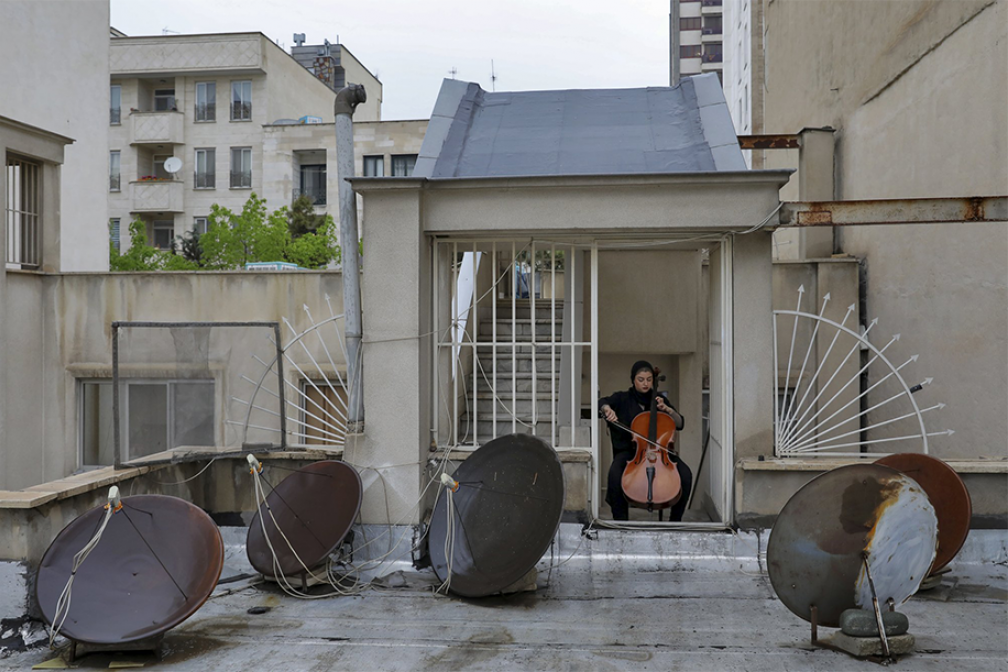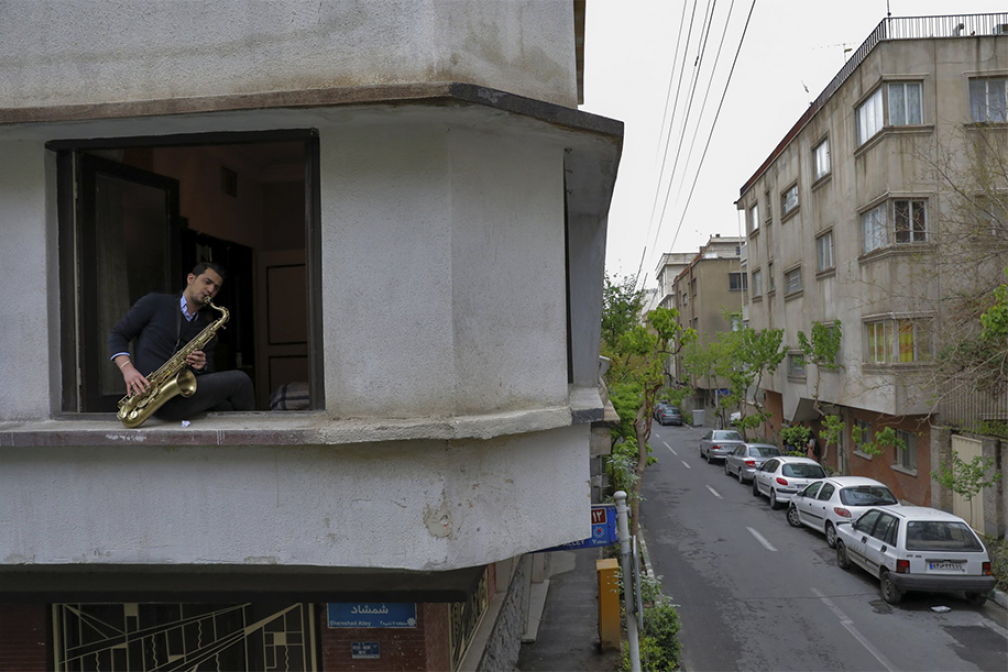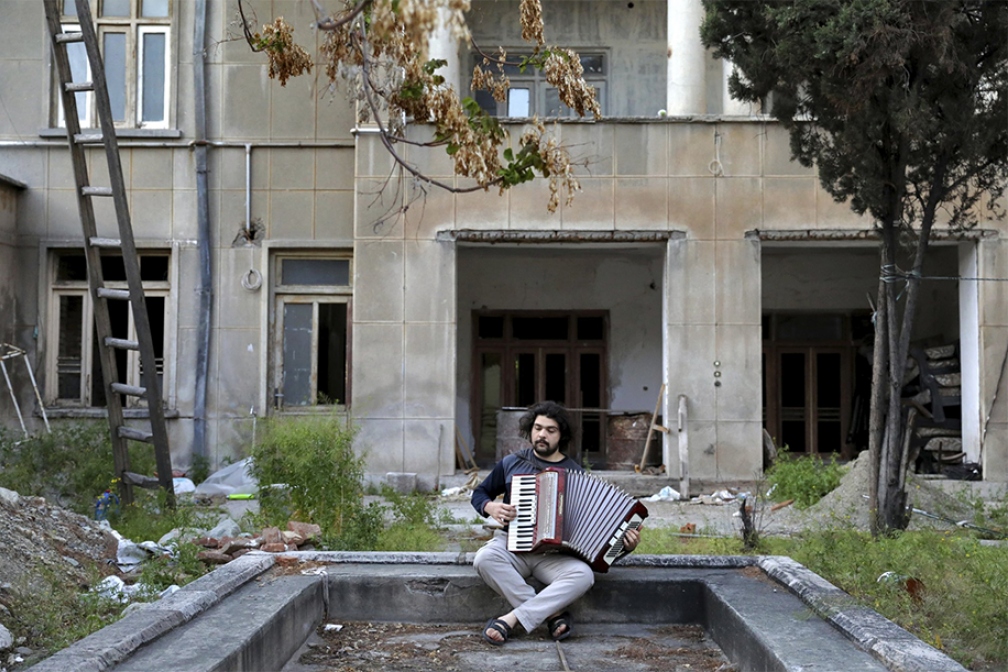Musicians in Iran have been immortalised playing music from their rooftops
Photographer Ebrahim Morrozi has captured Tehran’s new open-air stages
Since mid-March, Irani’s security forces have cleared the country’s streets and imposed a national lockdown to prevent the propagation of COVID-19. Today, out of a population of almost 80 million people, more than 90,000 cases have been confirmed, including nearly 6,000 fatalities.
Iran has been hard-hit by the virus, and musicians from all over the country understood that they could soften these difficult times by performing for their neighbours, on their rooftops. Instruments like the accordion, violin, kamancheh, double bass, drums, tar, cello, saxophone and even the qanun — an ancient stringed instrument — have all been immortalised by photographer Ebrahim Noroozi as they are played on an open-air stage.
“We’re not front line medical workers, hospital custodians, or grocery workers, but I think many musicians — myself included — have felt an obligation to offer our services of comfort and entertainment in these trying times,” said double bass player Arif Mirbaghi to the Associated Press.
As explained in AP’s article, classical Iranian music re-emerged in the 1990s after the disappearance of pop and western music in the country. Over the decades, it became more and more popular and is now used by the population to push the cultural limits imposed by Iran’s Shiite policies. The COVID-19 crisis has definitely accentuated the power of music, with nations all over the world joining together from their rooftops and balconies to serenade their communities with music.
“During these quarantine days, the only place that I feel I can share my music is in my yard with my neighbours as my main audience,” said the accordion player Kaveh Ghafari to AP. “These days I can feel the power of art more than ever.”
See a gallery of photos from Iran above.
[Photos via Ebrahim Noroozi, story via AP]


